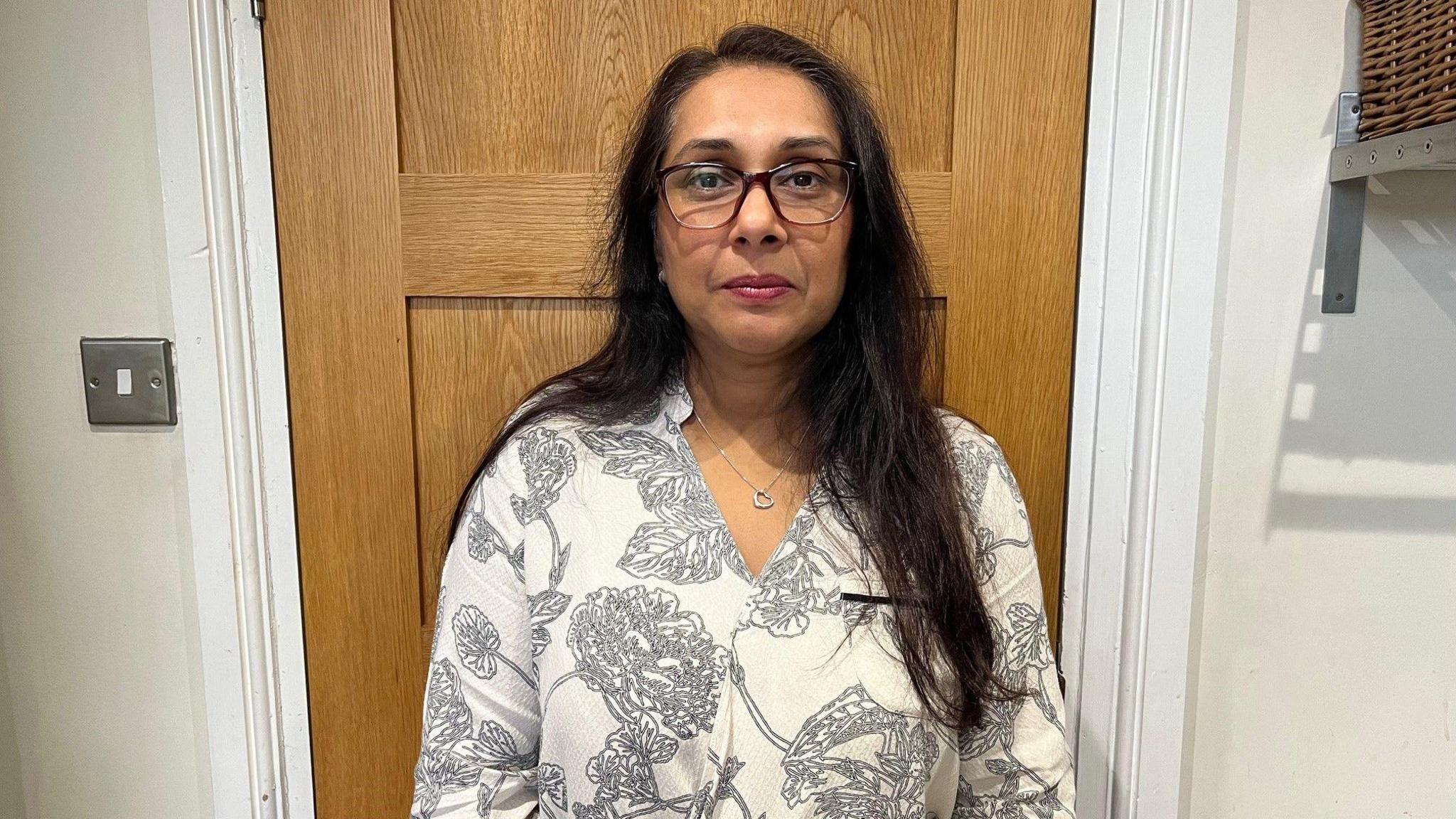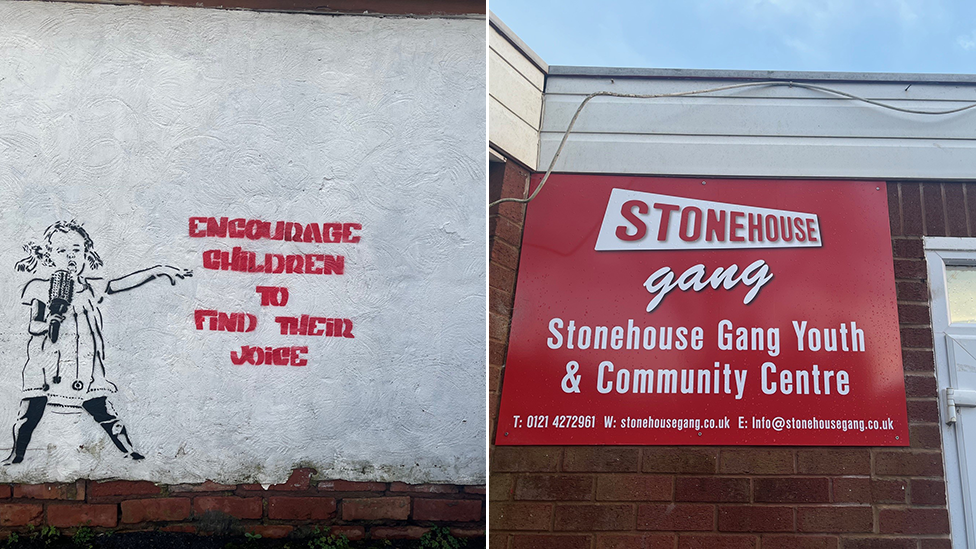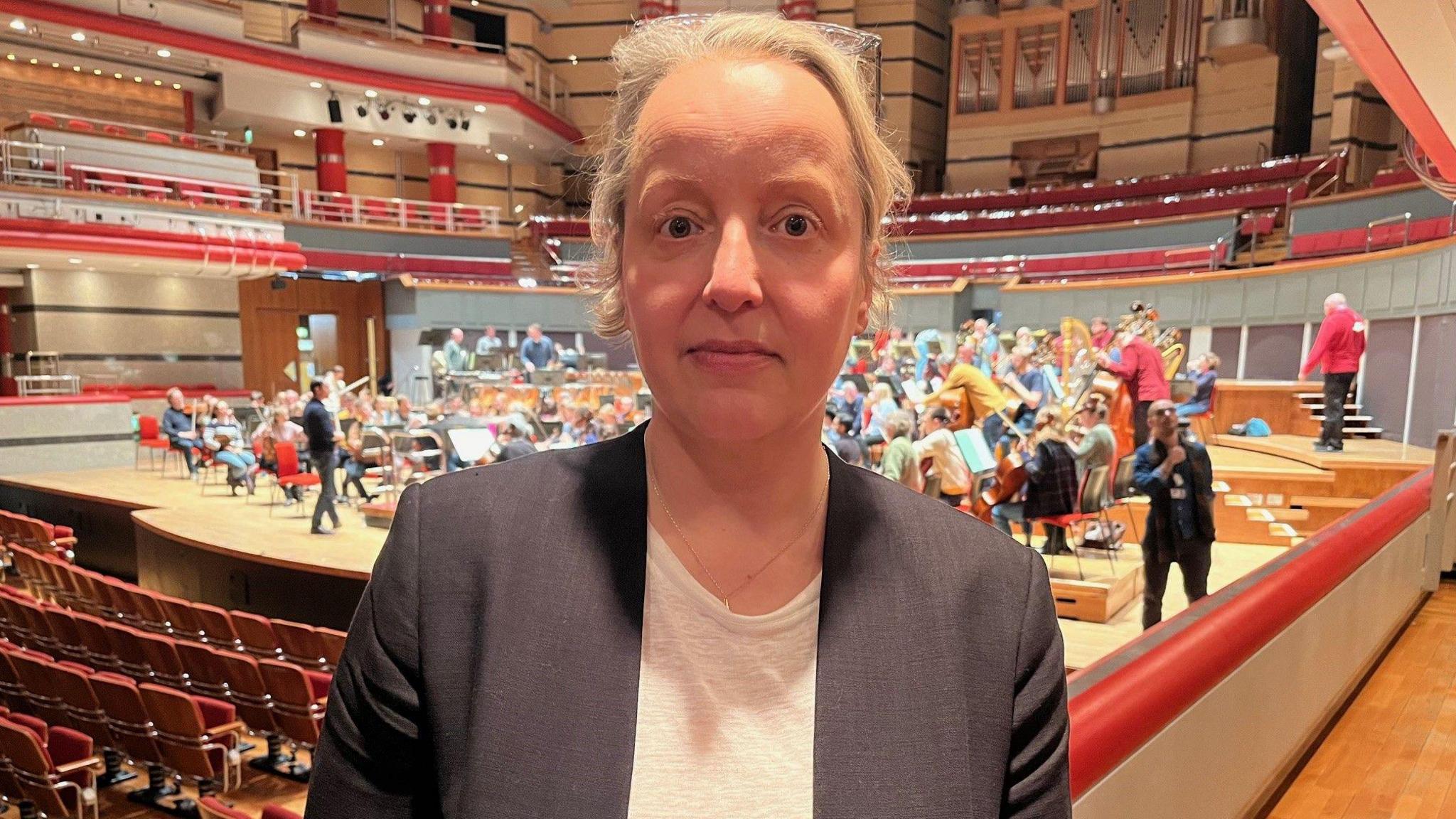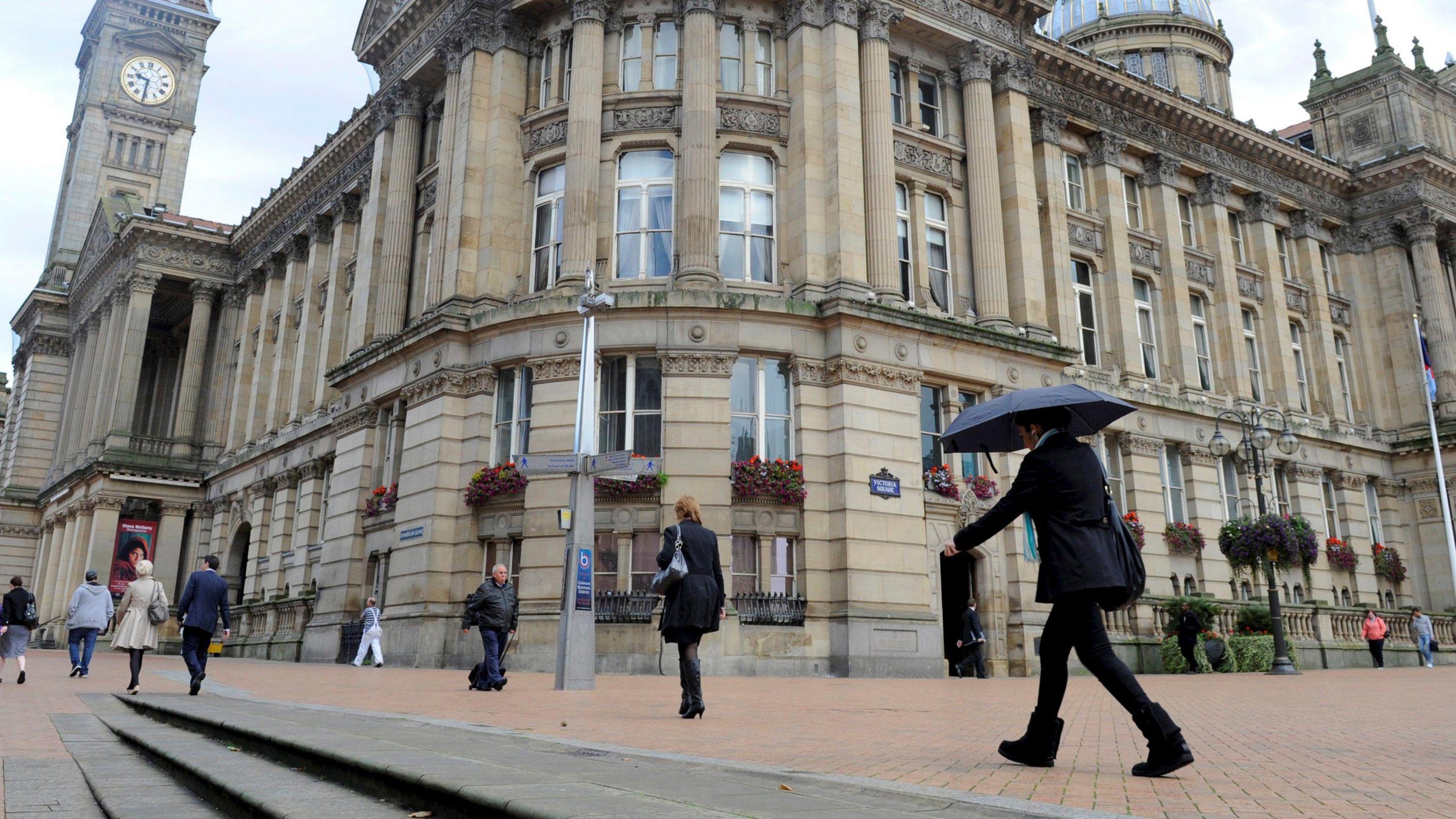City council cuts 'cruel' and 'short-sighted'

Harry loves getting a taxi to school with his friends
- Published
"Cruel, crisis, disappointed" - just three words used to describe the effect cuts being made by Birmingham City Council are going to have on people in the second city.
The local authority met on Tuesday to discuss the proposals as part of plans to tackle a £300m budget deficit over the next two years.
BBC News has spoken to three people to find out what it means for them.
It's 07:30 GMT and Harry has had breakfast and is ready for school. He is doing some bhangra dancing in his living room while he waits for his taxi to pick him up.
The moves are energetic - it's a flamboyant routine and it's one Harry does every morning.
The 16-year-old has Down's syndrome and special educational needs and has relied on council-funded school transport since he was four years old. He cannot travel independently and needs a guide with him.
The taxi is Harry's only way of getting to school in Lichfield, 10 miles away from his home.
"His future doesn't look great under Birmingham City Council's cuts," his mum Ramandeep explains.

Ramandeep is worried about her son's future under the cuts
That's because under the cuts, Harry's taxi might not be provided.
While funding necessary school transport is statutory for pupils with special educational needs and disabilities (Send) in primary and secondary school (four to 16), councils are not under the same obligation for children in nursery or those over 16.
"Harry could miss out on being in education if I can't get him to school and we don't want that for Harry," says Ramandeep, from Sutton Coldfield.
"He just wants to stay in education and have those life skills so that maybe at some point he can hold down employment."
The alternatives being offered - a bus pass or a smaller travel budget to make his own way to school - don't work for Harry because of his disabilities.
And Ramandeep would lose more than two hours out her working day if she takes him to the specialist school.
"His independence is travelling to school with his friends in a taxi and they are taking that away from him," she says.
"These decisions are cruel and they [the council] don't listen to the needs of parents and families like mine."
'Detrimental impact'
It's something that is giving the mother-of-three sleepless nights.
She thinks the cuts will have a detrimental impact on families in the city that will be felt for years to come.
Ramandeep wants the local authority to look at individual cases rather than have a one-size-fits-all approach to its decision-making.
"The council isn't looking at the individual needs of the young person. They just have an eligibility criteria and I think that is really unfair," she says.
"They need to meet the child, meet the family and make sure they are getting the right support.
"I feel really disappointed the council are going ahead with these cuts. It's really unfair. I just hope they find cuts somewhere else or find something within the budget to support us.
"Every step of the way in my son's life I've felt like I've had to fight for everything for him, and this just feels like another fight that we're having to go through."

Claire Khatmian said the youth club budget was already stretched
Meanwhile over in the south of the city in Selly Oak, I've come to an independent youth club, the Stonehouse Gang.
Youth services are another area of the budget being slashed.
The Children's Young People and Families department is looking to make £51.5m savings in the next financial year.
Assistant youth leader Claire Khatmian says getting funding is already a battle. And if council-run facilities start to close their doors, it will have an impact on them.
"It's stretched as it is," she says.
"It's really hard to get funding as a youth worker for the provisions that we provide. So if they're [other clubs] bidding for the same funding that we're bidding for it's going to make it really hard for us."

The Stonehouse Gang is not funded by the council, but fears the cuts could still have a knock-on effect
Ms Khatmian says clubs like Stonehouse Gang are really important in a working class area where there are lots of young people.
"Young people don't have anywhere to go. With the exception of after-school clubs or other provisions where parents have to pay, youth clubs are very minimal if not free," she says.
"It gives young people the opportunity to go somewhere and do something they wouldn't normally do."
The club lost its council funding years ago, but has managed to keep going through other funding and grants, and offers opportunities to young people and even has a residential centre in Wales which the children can go to.
Its success speaks for itself. The club has been going since 1938 and has welcomed three to four generations of families through it doors.
"We've got the longevity and the backing of the community because they like to see their kids and their grandkids come here," Ms Khatmian says.

The Stonehouse Gang has been running since 1938 and is a big part of the local community
The club could see an increase in numbers if others in the city have to close.
"It's not a problem because we'll accept all young people but it's a shame that they'll have to travel to come to us," Ms Khatmian adds.
But what does that mean in a city where crime is high and poverty and deprivation is an issue?
Ms Khatmian stressed: "Not all young people get into trouble and youth clubs aren't just to keep young people out of trouble.
"A lot of these young people that come here it might just be that's there's a safe space, there parents are working or they don't get the attention of their parents, and they've got somewhere with a responsible adult where they can come and talk to and have a conversation with that they might not get at home.
"It's about providing a safe space for all young people, because not everyone reverts to crime."

Chief executive of CBSO Emma Stenning said the council cuts would have a much bigger effect on smaller arts organisations
Turning to the arts budget now, which moved one councillor to tears at the cabinet meeting on Tuesday, the city's creative sector has warned it faces cultural deprivation amid the cuts.
The City of Birmingham Symphony Orchestra (CBSO) is facing a complete cut of its city council funding - a sum of £630,000 over the last few years.
It's losing half of that in the new financial year and the year after it will go completely.
Chief executive Emma Stenning says: "It's tough. It's really hard news for us. It's not a complete crisis. We're of a size that we've got a certain amount of resilience so we can keep going."
It will have to look at things like ticket prices, but the message coming out from the organisation is a positive one.
"We are carrying on. This is not game over for the orchestra," she adds.
"Our hearts go out to some of the smaller organisations in the city who are also losing their funding for whom it will be genuinely tough news."

The CBSO is a regular contributor to the Proms at the Royal Albert Hall
Describing the council as being in a complete mess, she questions if the local authority's decisions would cost Birmingham even more in the long run.
She says: "I completely understand that they have to balance the books. They have to find the money from somewhere. But you can't help but question whether these are short-sighted decisions."
She suggests it is the "beginning of dismantling something that really is essential for the city".
"I feel like we've been making this argument as a sector for decades now. But if it's not absolutely palpably obvious that the arts and culture play a vital role in the city... it is crazy to think that that's being ignored," Ms Stenning says.
"We drive tourism, we drive trade. We're the reason that businesses want to make their home here. We bring joy and uplift of people on a day-to-day basis.
"The economic impact of the arts is significant. The night time economy is driven by the arts, the list is endless."
Related topics
More on Birmingham City Council's cuts
- Published21 February 2024

- Published20 February 2024

- Published19 February 2024
